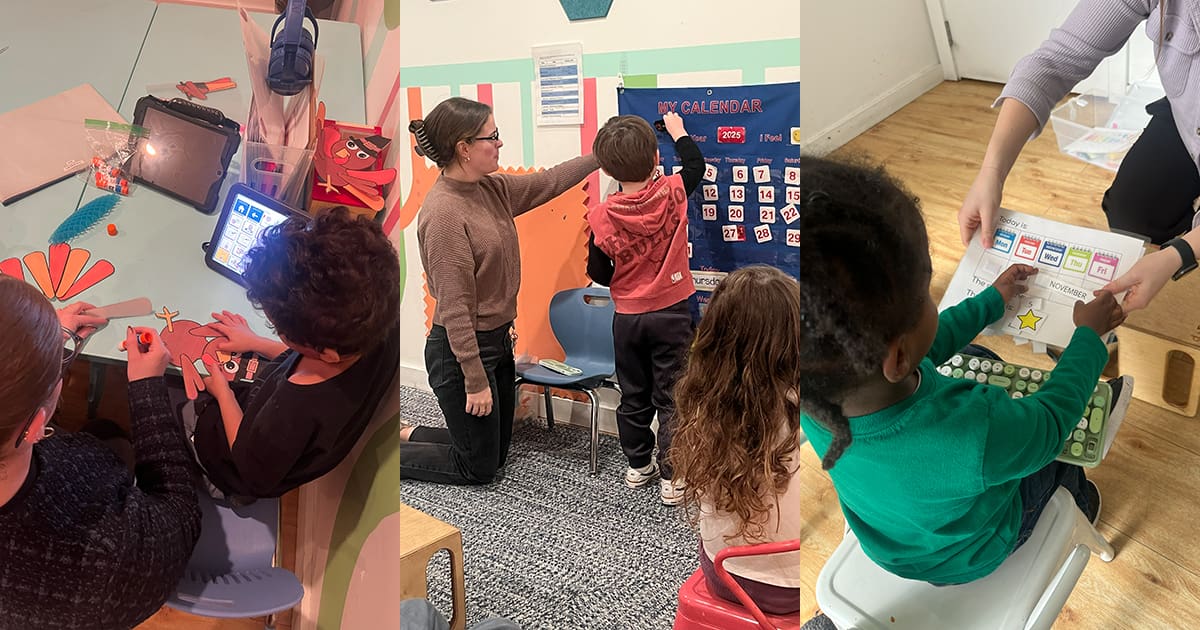Share this Post

The ability to hold and use a writing utensil is a vital milestone in every child’s development. For children, writing utensil grasp development is not just about learning to write; it’s about building fine motor skills, coordination, and independence. However, this skill develops gradually over time and follows a natural progression of stages.
At CST Academy, we understand that every child’s developmental journey is unique. Our team of experienced therapists works with children to support their grasp development, offering tailored strategies and compassionate guidance every step of the way. Whether your child is just starting to explore crayons or refining their pencil grip, CST Academy is here to help.
What Is Writing Utensil Grasp Development?
Writing utensil grasp development refers to the progression of skills a child needs to hold and control a pencil, crayon, or marker effectively. This ability forms the foundation for writing, drawing, and other fine motor tasks.
Why Is Grasp Development Important?
- Promotes Fine Motor Skills: Strengthens the small muscles in the hands and fingers.
- Improves Hand-Eye Coordination: Enhances the connection between what a child sees and how they move their hands.
- Builds Independence: Encourages self-expression and the ability to complete daily tasks like writing and coloring.
- Supports Academic Success: Prepares children for writing tasks in school.
Stages of Writing Utensil Grasp Development
Understanding the stages of grasp development can help parents and caregivers provide appropriate support at each phase. Below is a breakdown of the key stages:
1. Palmar Supinate Grasp (1-2 Years)
- Description: The child holds the writing utensil with their whole hand, using the palm to grip it. The utensil is typically held in a vertical position, and movement comes from the shoulder.
- Activities to Support Development:
- Provide thick crayons or markers for easier grip.
- Encourage scribbling on large sheets of paper.
2. Digital Pronate Grasp (2-3 Years)
- Description: The child uses their fingers to hold the writing utensil, with the palm facing downward. Movement still originates from the shoulder, but the fingers are starting to take on more control.
- Activities to Support Development:
- Offer short, chunky crayons or chalk to promote finger use.
- Encourage coloring within large shapes or outlines.
3. Static Tripod Grasp (3-4 Years)
- Description: The child holds the writing utensil with three fingers (thumb, index, and middle fingers), but the hand remains stiff. Movement comes from the wrist rather than the fingers.
- Activities to Support Development:
- Introduce triangle-shaped crayons or pencils to encourage proper finger placement.
- Provide activities like threading beads or using tweezers to strengthen hand muscles.
4. Dynamic Tripod Grasp (4-6 Years)
- Description: This is the ideal writing grasp, where the child uses their thumb, index, and middle fingers to hold the writing utensil with precision. Movement originates from the fingers, allowing for greater control and fluidity.
- Activities to Support Development:
- Offer regular pencils or pens for writing practice.
- Encourage drawing detailed pictures or practicing letter formation.
How CST Academy Supports Grasp Development
At CST Academy, we use evidence-based strategies to help children develop their writing utensil grasp. Our occupational therapists work closely with each child to ensure they receive the right support for their developmental stage.
1. Tailored Occupational Therapy Sessions
Our occupational therapists assess each child’s current grasp and design personalized interventions to help them progress.
Key Strategies Include:
- Strengthening hand and finger muscles through fun, engaging activities.
- Introducing adaptive tools, such as pencil grips or weighted utensils, to support proper positioning.
- Gradually transitioning children from thick crayons to standard pencils as they build confidence.
2. Play-Based Learning
We incorporate play into every session to make learning enjoyable and effective. Through activities like building with blocks, playing with play dough, or threading beads, children improve their fine motor skills in a fun and relaxed environment.
3. Parent Collaboration and Education
We believe parents play a vital role in their child’s progress. Our team provides guidance and resources to help families support grasp development at home.
Tips for Parents Include:
- Providing age-appropriate tools like crayons, markers, and pencils.
- Encouraging activities like cutting paper, peeling stickers, or squeezing stress balls to build hand strength.
- Celebrating small successes to boost your child’s confidence.
Common Challenges and How CST Academy Helps
While many children develop their writing grasp naturally, some may face challenges due to motor delays, low muscle tone, or sensory sensitivities. At CST Academy, we address these challenges with compassion and expertise.
How We Help:
- Low Muscle Tone: We use targeted exercises to strengthen the small muscles in the hands and fingers.
- Motor Delays: Our therapists provide step-by-step guidance to help children build skills at their own pace.
- Sensory Sensitivities: We create a calming, supportive environment that allows children to focus on their progress without feeling overwhelmed.
The Long-Term Benefits of Writing Utensil Grasp Development
Developing a proper writing grasp has lasting benefits for children, both academically and personally. By mastering this skill, children gain the confidence and independence they need to succeed in school and beyond.
Key Benefits Include:
- Improved Academic Performance: Strong fine motor skills support writing, drawing, and other classroom tasks.
- Greater Independence: Children can complete daily activities, like writing their name or drawing pictures, with ease.
- Boosted Confidence: Success in grasp development fosters self-esteem and a love of learning.
Why Families Trust CST Academy
Families choose CST Academy because of our dedication to providing compassionate, individualized care that empowers children to reach their full potential. Here’s what sets us apart:
- Expert Therapists: Our occupational therapists are highly trained in fine motor skill development.
- Tailored Programs: We create customized plans to meet each child’s unique needs.
- Engaging Environment: Our sensory-friendly classrooms make therapy fun and effective.
- Collaborative Approach: We work closely with families to ensure success continues at home.
Take the First Step Toward Fine Motor Success
Writing utensil grasp development is an important milestone that sets the stage for academic success and independence. At CST Academy, we are here to support your child every step of the way, offering expert guidance and compassionate care.
Contact us today to learn more about our occupational therapy programs and how we can help your child thrive.
Discover Our Pediatric Therapy & Autism Care
ABA Therapy
Support for children with autism.
Autism Evaluation
Expert assessments to identify child needs.
Pediatric Therapy Services
Speech, Occupational, Feeding, and Physical Therapy.
Therapeutic Preschool
A classroom environment designed for early learners with unique needs.

Find the Best Care for Your Child




